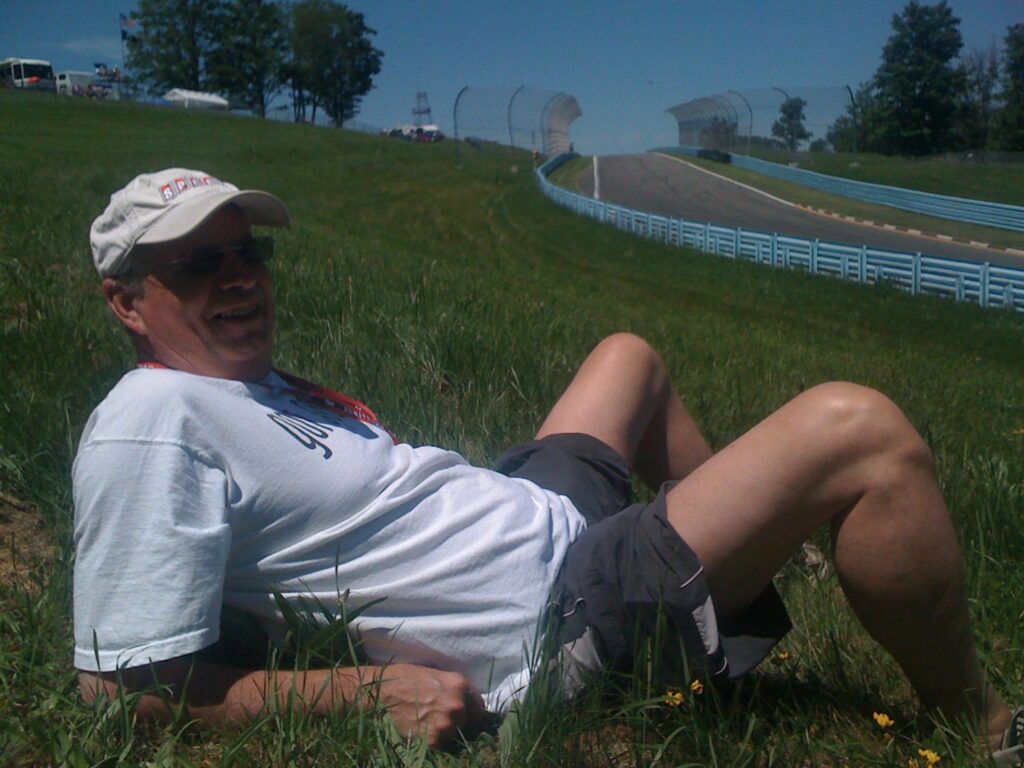
They say you shouldn’t meet your heroes. But Robin Miller was the exception to that rule, just like every other rule in the book.
It’s not an exaggeration to say Robin was one of my heroes. Reading his work in the Indianapolis Star as a teenager put me on the path to the life I have lived – a dream life, in many ways, trying to be my own version of Robin Miller. I’m so grateful for his role as an inspiration, a colleague, and ultimately, as a friend.
Not a close friend like Steve Shunck or Dave Furst, nor like the diverse group of former racers ranging from Lee Kunzman and Bill Vukovich Jr to A.J. Foyt and Parnelli Jones, whose company Robin loved and cherished. But more than just another beat writer in the media center.
Truth is, Robin helped me gain my place in the Indy car media. I got to know him in the late 1980s/early ‘90s, when I was making the transition from being a superfan to actually working in the industry; he would occasionally help me obtain credentials.
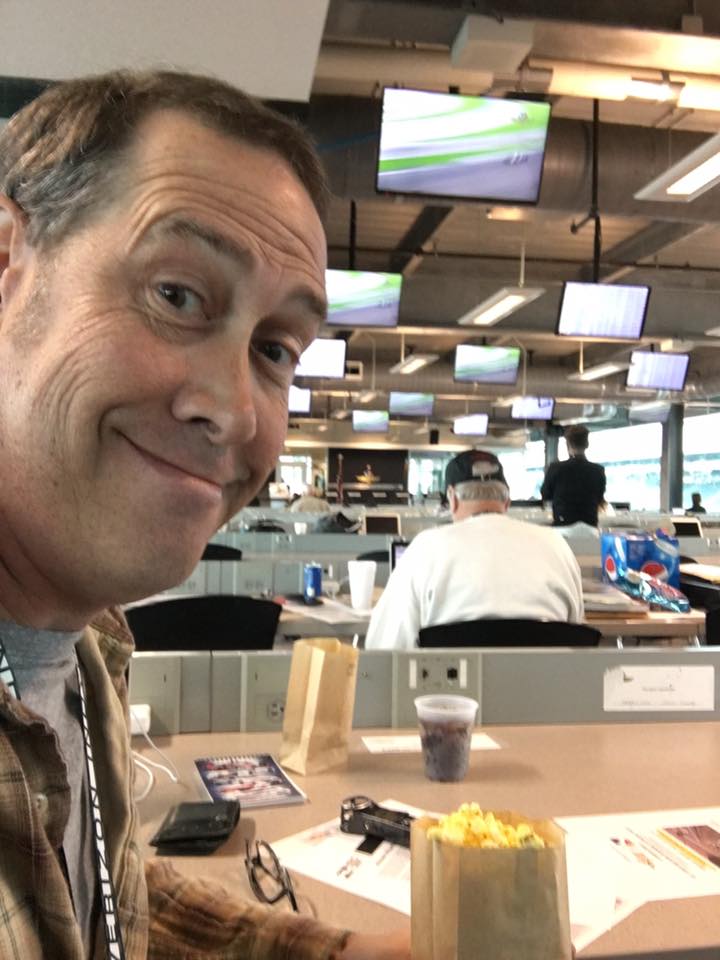
Then in early 1993, I wrote a letter to the Indianapolis Motor Speedway, hoping to find some kind of work during the month of May. “I’ll make copies, empty wastebaskets, anything except get coffee for Robin Miller (At that point, I didn’t know that he drank exclusively Pepsi).”
The letter got in the hands of Bob Walters, who happened to mention it to Robin. “He’s a good kid, he’ll do a good job for you,” Robin said. That’s what got me the gig, $1,200 for the Month of May as a press room gofer. A week later at Milwaukee, with the assistance of Robin and Gordon Kirby, I was granted a CART hard card and my adventure was underway.
Over the next 28 years, it was a privilege and a pleasure to work alongside Robin. It was easy to understand why he was the absolute best in the business. He had amazing work ethic, and a peerless range of contacts.
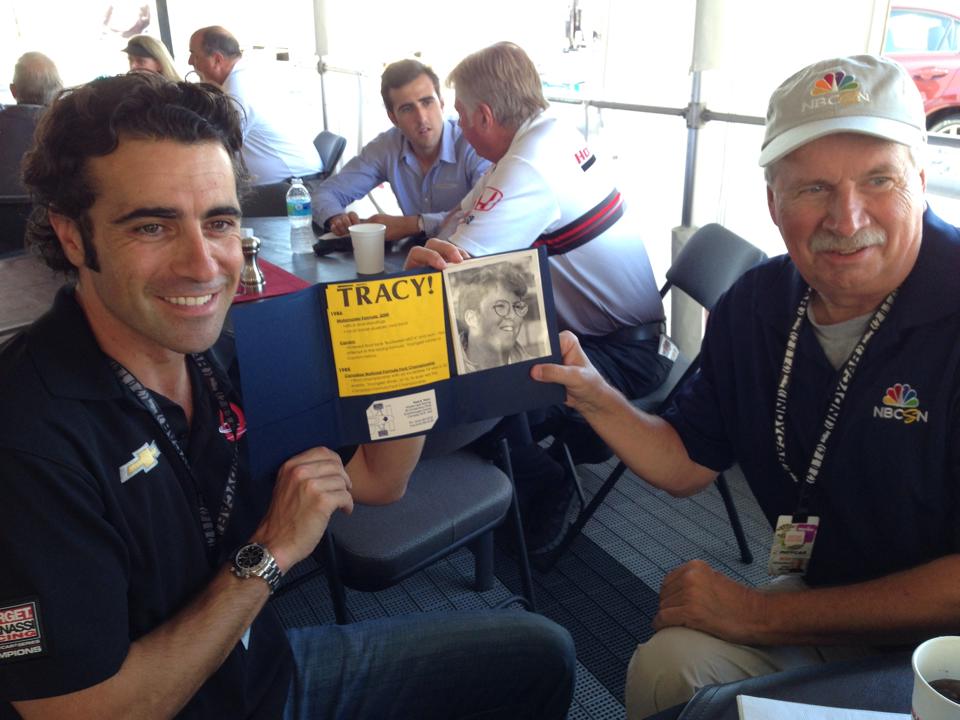
When I was younger, before I actually studied journalism, I didn’t appreciate the quality of his writing. So punchy and direct, and of course, Robin broke more major and minor stories than all of his competitors combined. He gave as much attention and respect to the minnows at the back of the field as he did to the big fish at the front.
Robin was never afraid to be controversial and was always guided by the truth, even if it meant putting his ass or his reputation on the line. He had the courage to stand by his convictions, and the charisma to pull it off. “He was a true one-off, saying it like it is, and to hell with the consequences,” noted our friend and colleague, Formula 1 writer Maurice Hamilton.
It’s been difficult to watch his health decline over the last couple years, but I am so pleased that the Speedway and INDYCAR made peace with a man they long considered an enemy. Robin was finally given the recognition and respect that he has long deserved as the most important and influential voice in the free media.
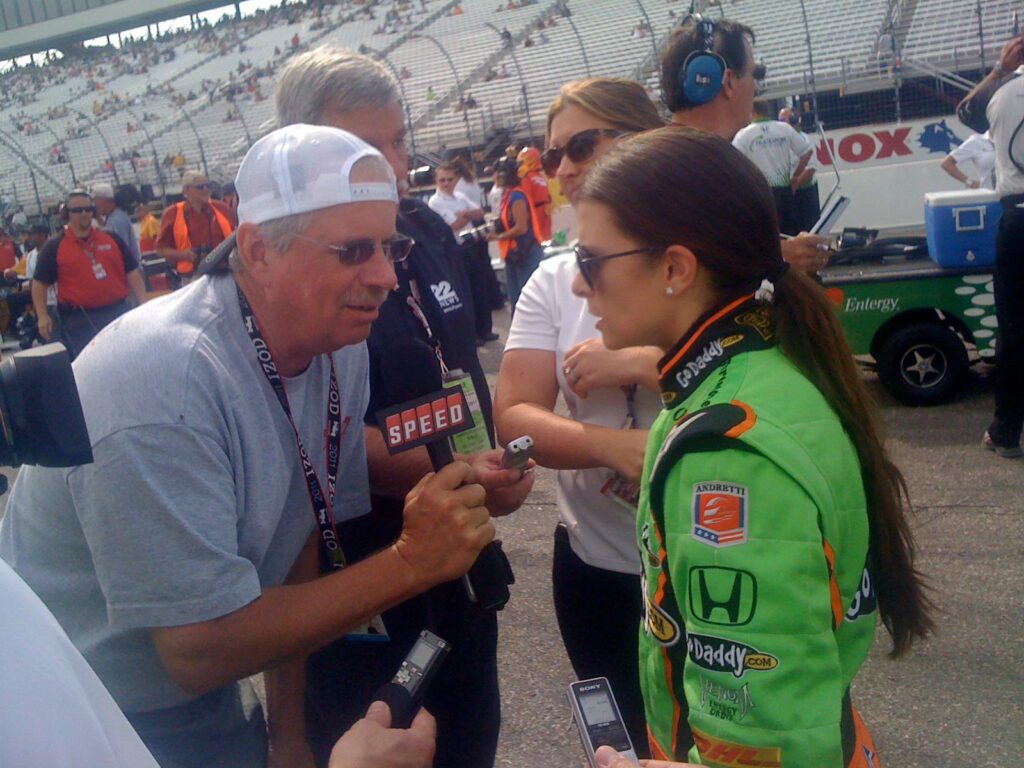
Here are some personal memories:
Any time spent with Robin included plenty of laughing and swearing. I recall a dinner at Al’s Steak House in Joliet, Illinois about 20 years ago, while covering an IRL race at Chicagoland Speedway, when I seriously thought we were going to get thrown out for having too much fun. Robin loved old-time places like that (It’s still open! https://www.alssteaks.com), where the average age of the clientele was probably upper-70s. I can’t remember precisely who was in our group; I know it included Jeff Olson, but the stories were flowing, getting louder and more profane, with our laughter peaking after Jim Roeder’s spot-on imitation of a retired football player turned commentator. The waiters were happy for us to camp (Robin was a generous tipper) but I do remember the house regulars just glaring at us in contempt.
Robin’s typical order was a filet mignon, butterflied and well-done, with French fries and a Pepsi. If the restaurant was a Coke house, he often brought his own Pepsi. If Honda hospitality was serving something a little too hoity-toity for his liking, he’d sit down with a concession stand hot dog and potato chips. One year, Kathi Lauterbach invited a few of us to dinner with Sebastien Bourdais and Bruno Junqueira at Surfers Paradise. Almost everyone stayed in the Marriott hotel across the street from the track or the adjacent Mercure, so she conveniently scheduled the meal at the Benihana within the Marriott. Robin did have a few bites of his steak and maybe even nibbled at the shrimp appetizer, but he had a bag of Jay’s Potato Sticks in his lap for his main course.
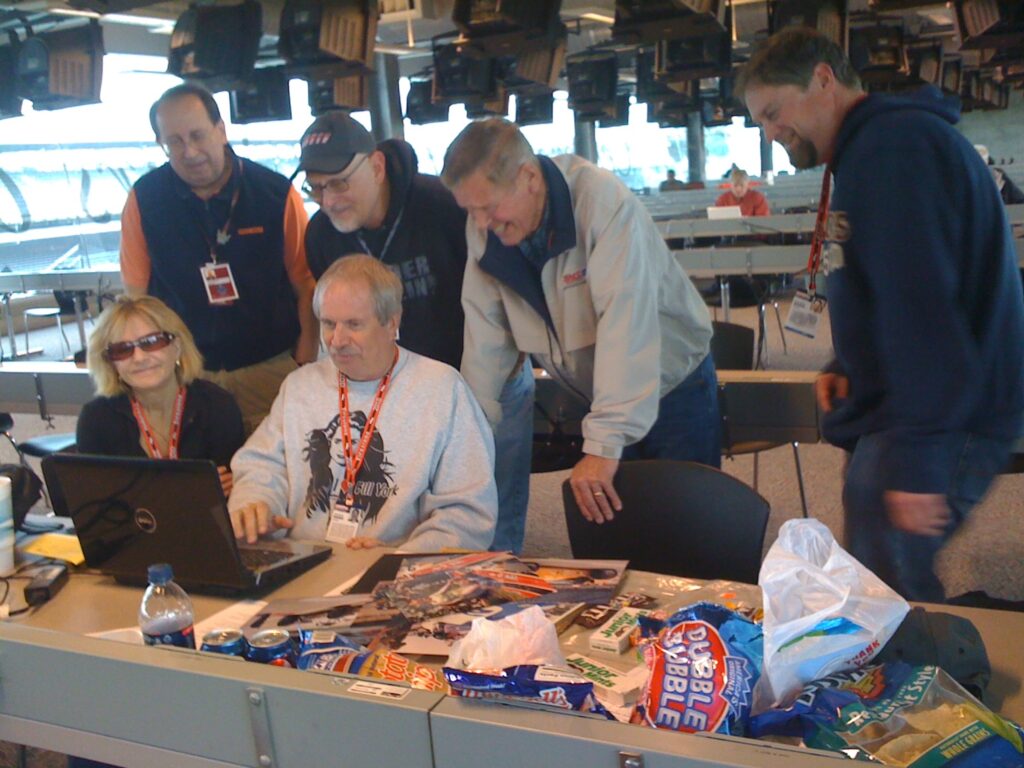
He was the social hub of the IMS Media Center. His desk always featured an array of candy and salted snacks, and he would frequently stop for boxes of hot Long’s doughnuts on his way to the track. Everybody wanted to stop by and say hello, and Robin gave as much time to one-off media rookies as he did to his best friends.
We covered many of Indy car racing’s significant events side by side from 1993 to 2017. From 1999 to 2007, Robin, Gordon Kirby, David Phillips and myself contributed to the equivalent of today’s indycar.com, which in those days was operated by an outside company and licensed by CART or Champ Car. Forrest Bond dedicated a column to us, titled “The Gang of Four,” somewhat rightfully pointing out the conflict of interest involved in writing on behalf of CART (not directly!), and also in the media. I likened it to wearing a PR hat while writing for the sanctioning body website and putting on my journalist hat when the job switched to National Speed Sport News or ESPN.com. Forrest didn’t explain that commercial work was the only way for writers to make a living in auto racing, but that’s okay. To be included in the same group with Robin, GK, and DP – no matter how derisively it was intended – is a highlight of my professional life.
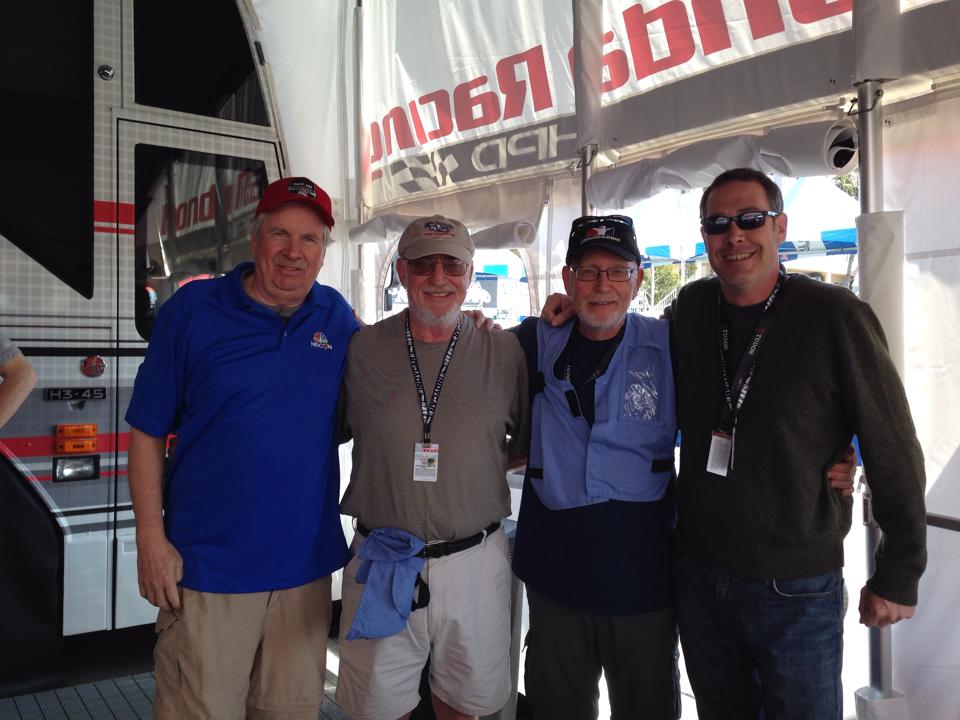
In July 2002, we covered the Indy 500 protest saga that maintained Helio Castroneves’ win over Paul Tracy. In the press conference to announce the decision at IMS, Tony George was droning through his prepared remarks before coming to an awkward stop. “And…if I had…the last page of my notes,” he stammered, to a murmur of laughter – pierced by one sharp, clear, “Ha!” on my recording that is the unmistakable chortle of Robin Miller…
In 2004, Kevin Kalkhoven and Gerry Forsythe bought Cosworth Engineering, in part to protect to protect Champ Car. Kevin invited Robin and me to fly with him to London on his Gulfstream for the announcement, but leaving on short notice from Detroit. Robin drove us up there in his Ford Explorer, using the cruise control buttons on the steering wheel to accelerate and coast as needed. We spent a lot of time within inches of the rear bumper of slow-moving cars in the left lane, with Robin MF-ing the hapless incompetents while deftly controlling the tiny gap with his cruise control finger.
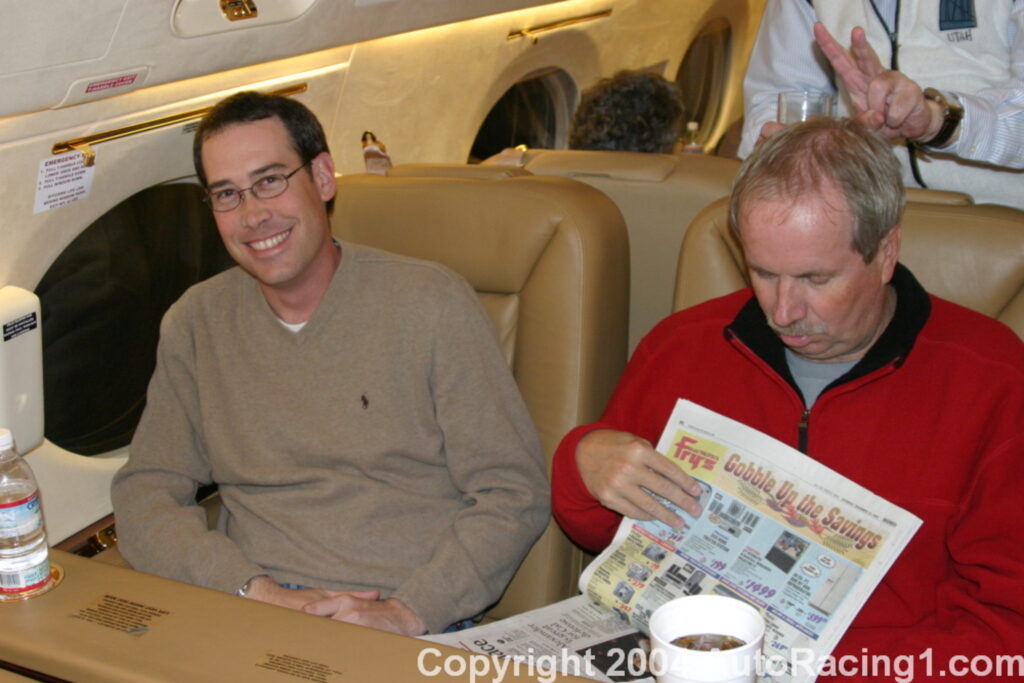
When we arrived at our hotel, Kevin arranged for us to dine at the Waterside Inn, one of England’s most prestigious restaurants. Robin wanted absolutely no part of that. The Waterside meal was one of the best I’ve ever experienced and I’m glad I went, but in all honesty, I would have loved the opportunity to explore London and find a greasy fish and chips bar with Robin.
The fate of Champ Car was determined in an owner’s meeting at Sullivan’s Steakhouse in Indianapolis in early 2008. Robin and I staked out the meeting, taking the opportunity to have a nice meal (he paid – he never let me pay). At one point, Robin donned a waiter’s apron, grabbed a tray, and walked right into the meeting. Only Robin could have pulled something like that off, and with the ice broken by laughter over his antics, we got the stories we needed.
Not too long after the first time I was downsized by ESPN, a shipment of Omaha Steaks showed up on my doorstep. It happened again several times over the years. It was Robin’s way of helping me as I negotiated life as a struggling freelance journalist who was also a full-time single parent. What an unbelievably kind and thoughtful gesture, something I will never forget. And I know of many other recipients of Robin’s generosity.
In more recent years, Robin hosted “Team Lunch,” a mixture of his friends, old racer cronies, and whoever happened to be passing through Indianapolis at the right time. The venue often changed over time, but the spirit and camaraderie never waned. Whether it was at Workingman’s Friend, Pit Stop BBQ or Charlie Brown’s, laughter and good times were the order of the day. You couldn’t help but smile and have fun when in Robin Miller’s company.
Robin never wrote a book, but I’m incredibly grateful that he wrote the Foreward to one of mine. What a book his would be, the story of a one-of-a-kind life lived to the fullest. Rest in peace, my friend.

